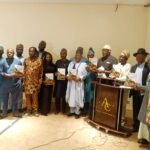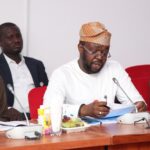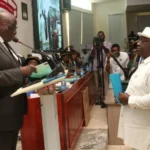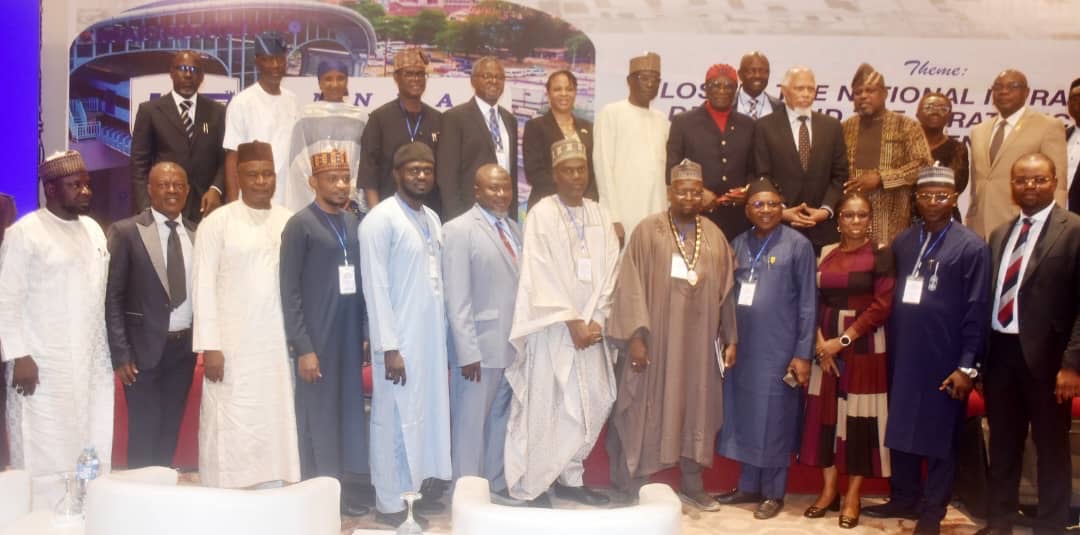By Angela Atabo
Sen. George Akume, the Secretary to the Government of the Federation (SGF), says consulting engineers are crucial partners in Nigeria’s drive to bridge infrastructure deficit and achieve sustainable national development.
Akume said this at the 47th Annual Conference 2025 and General Meeting of the Association for Consulting Engineering in Nigeria (ACEN), in Abuja on Tuesday.
The SGF was represented by his Senior Special Assistant, Technical, Prof. Babatunde Bolaji.
He said the conference themed “Closing the National Infrastructure Deficit and the Strategic Role of Consulting Engineers” aimed to address issues around national infrastructure gap, among others.
According to him, the theme of the conference aligns perfectly with President Bola Tinubu’s Renewed Hope Agenda, which prioritises massive investment in infrastructure as a catalyst for economic transformation and job creation.
“None of these efforts will be possible without the technical competence and innovation of Nigerian consulting engineers.
“ACEN members are the unsung heroes, ensuring that our roads, bridges, water systems, and power projects meet global standards of safety, efficiency, and sustainability.
“The federal government recognises your critical role, from feasibility studies to project management and maintenance, and we are committed to deeper partnership, with your association.
“Through the Presidential Council on Infrastructure Delivery and Monitoring, we are introducing new frameworks for quality assurance, capacity building, and local content optimisation in engineering consultancy.
Akume highlighted the administration’s ongoing infrastructure programmes, including major highway projects, rail modernisation, and power sector reforms, as part of efforts to boost connectivity, productivity, and inclusive growth.
He urged engineers to continue providing the technical leadership and innovative solutions needed to accelerate national development, adding that bridging Nigeria’s infrastructure gap requires synergy between government, private firms, academia, and development partners.
Akume called for stronger collaboration between government, private consulting firms, academia, and financiers to sustainably close the infrastructure gap.
In his keynote address, Dr Abba Aliyu, Managing Director and Chief Executive Officer of the Rural Electrification Agency (REA), described the nation’s lingering electricity challenge as both a national and professional test for engineers.
He noted that in spite of decades of policy discussions and political promises, over 86 million Nigerians still lacked access to reliable electricity, a figure that places Nigeria among the countries with the highest number of people without electricity access globally.
“Nigeria has the highest number of people without electricity access challenge. And to me, it is a challenge to engineers.
“It is a challenge to the people that are innovative, people that have the technical know-how to develop innovative infrastructure to address this access challenge.”
Aliyu emphasised that while Nigeria is still striving to achieve universal electricity access, global energy systems are rapidly evolving, with advanced economies already preparing for the massive power demands of artificial intelligence (AI) and other high-tech industries.
“By 2030, it is projected that AI penetration alone will require about 945 terawatt-hours of electricity globally. While other countries are expanding generation to meet such futuristic needs, we are still trying to provide basic access to millions,” he said.
He, therefore, called on Nigerian engineers to lead the charge in bridging the country’s infrastructure and electricity access gaps through innovation, local manufacturing, and sustainable energy solutions.
“The energy future we seek will not be built by policies alone, but by engineering ingenuity. Let us continue to collaborate, public and private, government and professional to build a resilient, inclusive, and proudly Nigerian energy sector.”
Also speaking, the President of ACEN Kam-Salem Bukar, Nigeria stands at a critical point where infrastructure development has become indispensable for economic growth, social progress, and global competitiveness.
According to Bukar, the conference’s theme is both timely and strategic, given Nigeria’s growing infrastructure deficit and the urgent need for innovative engineering solutions to address it.
“Consulting engineers are uniquely positioned to provide the expertise, innovation and strategic guidance required to bridge the gap.
“So, we will engage in robust discussions, share insights and explore practical solutions that will enable us to deliver sustainable infrastructure projects.
“The conference is not just about identifying the challenges; it is about creating actionable strategies and partnerships that will transform our vision and reality.”
Mrs Margaret Oguntala, President, Nigerian Society of Engineers (NSE), said ACEN has consistently promoted the judicious deployment of resources in the face of competing national priorities, ensuring value for money, and upholding the principles of transparency and good governance in project execution.
“Irrespective of prevailing economic constraints, it is imperative that the execution of infrastructure projects by both subnational and federal governments continue unabated.
“These projects remain the backbone of national development, job creation, and economic stability.”(NAN)
Edited by Deji Abdulwahab












